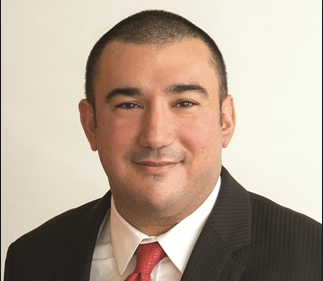As a Uruguayan and American that has been working in Brazil or with Brazilians since 1995, I have never seen the country in this way. In 2012, while I was visiting Brazil, I went for a jog early one beautiful morning in Vitória, the capital city of Espirito Santo. Espírito Santo state is Brazil’s largest producer of petroleum and Vitória is an important port for exporting iron and steel from companies like Vale or CST.
As I stopped to hydrate, I realized that the coconut water I bought from a street vendor in this secondary city, was more expensive than a Vita Coco coconut water in New York City or arguably Tokyo! There were clear fundamental reasons BigSur became bearish on the economic growth of the country, on the Brazilian Real and on all Brazilian asset markets. A decade of prosperity fueled by the commodity boom, allowed Brazil to hide problems in its legal and political framework rather than build stronger institutions during its good years.
For the Brazilian families that were clients of ours at that time, we strongly recommended that they diversify outside of Brazil. Fast forward four years later to current day, and the country is arguably in its deepest crisis ever! I have just returned from a trip with a colleague from Intermediate Capital Group, a USD 23 billion in AUM specialized credit manager, with over 26 years of history investing in private debt across the globe. I wanted to share some thoughts about what’s going on in Brazil – while we believe this is a very idiosyncratic Brazilian crisis, we think we can shed some light from our admittedly “gringo” perspective.
A Long Road Ahead to Improve the Economy
Brazil’s economy is facing its worst recession since the 1930s. Its economy is expected to contract by 4-5% this year, after shrinking 3.8% in 2015 (which was its fastest deterioration in 35 years). This could translate into a loss of about 8-9% of GDP in two years, which some economists constitute as a depression.
Many factors led to Brazil’s current situation. There were a series of ill-founded policies, including an excessive increase in consumption through lines of credit, cheap interest rates below the break-even point and an artificially valued exchange rate to control inflation. Brazil also has a lack of trade agreements with the main global economic blocks, and many public entities use “creative” accounting methods. These types of policies enabled the country to achieve a few years of growth above its potential, buoyed by the boom in commodities, and also helped by artificially low inflation, unemployment and fuel prices. In addition to economic decline, many expect an unemployment rate around 12%, a sharp fall in family income and decreases in investment and consumption. Government debt is now rising quickly to a level where reversal becomes extremely difficult and painful to administer. Brazil was downgraded by all rating agencies to junk status, both in terms of local debt and foreign debt.
We believe it’s going to be a long road for the economy to come out of its paralyzed state, and the process will not be quick or easy. Why? This is a highly rigid economy, with a heavy use of indexing. With strong unions, regressive labor laws and a cumbersome judicial system together with poor infrastructure there are many “bottle-necks” in the economy – inadequate roads, a dearth of rail lines, and strapped ports, all hampering the flow of products to market. The cost of moving soy, the number 1 export product in the country, from the grain belt in Brazil’s the interior state of Mato Grosso to the port of Santos in São Paulo state, is close to four times what it costs a farmer in Illinois to get his soy crop to New Orleans
All of this also leads to an incredibly high cost of doing business. The famous “custo Brazil” has many components, including high taxes (36% of GDP, way out of line with the 21% average for upper-middle-income countries), rocking import duties and rigid labor laws that make it hard to use workers efficiently. High interest rates mean firms must spend a packet on financing; high crime adds heavy security costs to their overheads. A terrible education system makes Brazil the world’s second-hardest place for firms to find the skills they need, according to Manpower Group
In the 2016 World Bank’s Cost of Doing Business, Brazil comes 116th in the world (down from 111th in 2015). Some of the high “cost of doing business” factors where Brazil compares unfavorably with OECD countries and even other Latin-American countries include:
- Number of procedures and Number of days to start a business;
- Number of hours per year of time to pay taxes – Brazil is the ranked the number 1 most time consuming tax system in the world!;
- Cost to export; Cost to import; Time to resolve insolvency; and Time to resolve litigation
By analyzing Brazil’s economic prospects for the next few years, we have come to the conclusion that the country will need low real interest rates to recover its ability to grow, and that inflation should remain controlled. We do not see either of those conditions present anytime soon.
A Paralyzed Political Situation with No Clear Solution
While the country is completely paralyzed, it is clear that a political catalyst is needed. However, with or without impeachment we see no deep political change foreseen any time before, and probably during, the 2018 elections. Most likely, we will see one set of crooks is being replaced by another. With or without impeachment of President Dilma Rousseff, Brazil is confronting a host of challenges that would complicate a new government’s ability to revive a sinking economy and ease unrest inflamed by months of bitter political jousting. Any alternative government will be led by politicians that are corrupt and involved in the scandals, especially the centrist PMDB, considered a “party for hire”. Thus, with or without the Senate’s impeachment, we view the political situation as fragile and unstable.
Vice President Michel Temer from the PMDB party, (which shared power with the president’s Workers’ Party before splitting off in March) stepped down as leader of the PMDB this month. This happened after a Supreme Court justice made a preliminary ruling that any impeachment of Ms. Rousseff may extend to Temer, as he’s also being investigated for funding Ms. Rousseff’s 2014 campaign with bribes. The scandal doesn’t end there: on the other side of the coin, the legislator overseeing impeachment, Mr. Eduardo Cunha, is also facing charges and indictment alleging that in 2006, he helped orchestrate a USD 40 million bribe in exchange for two contracts to build floating oil platforms for Petrobras. This illustrates just how difficult it will be for the country to turnaround, as the roots of corruption are deep. Mr. Cunha’s first political patron, ex-President Collor, returned to government 15 years after his impeachment. He was elected to the Senate, put in charge of an ethics committee and will be among those voting on Ms. Rousseff’s impeachment. Does it get more ironic than this?
According to non-profit Transparência Brasil, 60% of Brazil’s federal legislators have been convicted or are under investigation, for crimes ranging from corruption to electoral fraud to assault. The PMDB party could form a new government, but it’s riddled by internal rivalries. The most pressing challenge for Mr. Temer and any new government would be to mollify Ms. Rousseff’s enraged hard-core base. The country will be overrun by social mobilizations, strikes, and workers’ occupations by the homeless and landless. After months of uncertainty and hardship, this frazzled country is inevitably headed for more of the same.
The problem in Brazil is that legislators have immunity. The lead prosecutor in the Petrobras case calls for an overhaul of these rules; saying corruption runs so deep that even the dozens of convictions in the Petrobras investigation won’t be enough to root it out. For a country to get rid of corruption and impunity and change its culture, they will have to alter the institutions. And this is not even on any table at the moment. The other complicating factors that add to instability are that no other political party or leadership has capitalized yet from the population’s distrust and the complicated political system with 35 parties. While it’s not our base scenario, the danger of Brazil following Venezuela’s path is latent.
Cultural Change and Structural Reforms are still Far Away
The crony capitalistic economic model introduced by the Workers Party (PT) generated an explosive growth in debt and huge distortions in the assignment of resources and credit in the economy. Some analysts estimate that around 50% of all corporate loans were subsidized. To reverse the explosive growth of debt, several structural economic reforms will need to be implemented. On the government budget, the main focus must be on reducing compulsory expenditures guaranteed by the constitution, so as to give the government higher flexibility when tax revenues drop. This must include a social security reform, a change in the calculation of the adjustment of the minimum wage and pensions, greater decoupling of budgetary revenue, and greater flexibility in labor laws, to name just a few. But it’s yet very soon to guess what the new economic model will look like.
We do not believe there are any real political alternatives and there is no focus on structural nor institutional change. The economic model and the culture will change once new processes are in place, not just because Judge Moro is going after corrupt politicians and entrepreneurs. We consider this a good first step and a necessary one. However, we do not view it as a sufficient reason for a change in the way Brazil operates. In a Harvard Business Review paper called “Culture Is Not the Culprit” by Jay W. Lorsch and Emily McTague, the authors conclude that culture isn’t something you “fix.” Rather, in their experience, cultural change is what you get after you’ve put new processes or structures in place to tackle tough business and economic challenges (like reworking an outdated strategy or business model). The culture evolves as you do that important work. We are far away from this in the Brazilian model. In the meantime, the corruption scandal is keeping the “Animal Spirits” depressed, as net investment is negative and there is no investment in infrastructure or intensive capital goods industries. There’s yet no catalyst for a change, as there’s no deadline for the persecution of entrepreneurs. However, similar to the dynamic we are seeing in US and Europe, the Brazil M&A space has benefitted from interest of multi-national companies making strategic acquisitions. These are companies looking to buy developed and performing assets with a strong foothold in the country – they can avoid the risks of building businesses or infrastructure assets from scratch this way.
M&A (Mergers & Acquisitions) activity is strong
One theme we’re paying attention to is the serious uptick in M&A activity in Brazil. The fourth quarter of 2015 was the third best quarter for M&A since 1995, with deal volume reaching USD 22.6 billion. This has continued into the first quarter of this year, and bankers are optimistic that the trend will remain for the short term. The near 45% depreciation in the Brazilian real against the dollar since mid-2014 has made Brazilian assets more affordable for foreign investors, attracting buyers from Europe, the US and increasingly Asia. The Brazilian market, with an overall population of 200 million and a large youth demographic (25% of population) is important for many long-term strategic investors, who this point in the cycle, believe they are getting access to a market they need to be in for a cheap price. We’re seeing this especially in infrastructure, consumer goods and consumer discretionary companies.
Farming is Brazil’s one Bright Industry
Brazil’s farmers look set to produce record crops of soy, coffee and sugar cane this year, while cattle ranchers and chicken and hog farmers foresee reaching new heights for exports. Agriculture was the only sector of Brazil’s economy to expand last year, by 1.8%, while overall GDP shrank 3.8%.
The whole world has to eat, and Brazil makes its living from agriculture. Brazilian farming continues to undercut its counterparts in the U.S. and Europe as it is the most efficient producer in the world. This is for two reasons: 1) Brazil became a lot more competitive last year because of the weaker real; and 2) agriculture offers a rare example of a Brazilian sector that is globally competitive. The
country’s largely inefficient manufacturers are still heavily protected by tariffs and import taxes, but the government took the opposite approach with agriculture. Starting in the 1990s, it reduced subsidies and eliminated export taxes while increasing investment in agricultural research. Farmers responded with a rapid expansion of the area under cultivation and a burst of investment that made them among the most productive and efficient producers in the world. Soy products and coffee are the locomotive of Brazil’s agricultural sector. Only the value of soybean and soybean-product exports went from USD 23.9 billion in 2011 to USD 31.3 billion in 2014. Even as sales retreated to USD 27.9 billion last year, soybeans still dethroned iron ore as the country’s most valuable export.
Conclusion
While good economic times do not necessarily make for smooth politics, bad politics generally go hand in hand with an underperforming economy. Certainly, Brazil needs to resolve its political crises before it can tackle its economic woes. The problem is that a successful impeachment vote may simply lead to another equally unstable government — with an administration led by vice-president Michel Temer, also dogged by corruption accusations and questions of legitimacy, it would be near impossible to pass necessary (but unpopular) fiscal reforms.
A question we have is whether Brazil could turn into the next Venezuela, or can it follow Argentina’s path? If Brazil does not “do their homework” and institute structural reform and cultural change, the country can go into a collapse similar to Venezuela. We view this as a low probability scenario, but it cannot be discarded. If Brazil can “clean house” and rid itself of the same old types of politicians, and bring in a leader without ties to corrupt institutions, like Argentina has done with Macri, there may be a chance at a turnaround. It’s still unclear which path Brazil will follow.
It’s also important to note that transitions, even peaceful ones, are messy and take time: Argentina’s economy is likely to shrink this year before the new government produces a turnaround. In Brazil (as ironically in Venezuela), even if there is political change tomorrow, it will take a long time for their economies to regain balance. Markets have been trading Brazil in a binary fashion lately — any development suggesting a rising chance of impeachment leads equities and the currency to rally and vice versa. Caution and patience are warranted. Nibbling for (distressed) opportunities seems the right approach.
Opinion by Ignacio Pakciarz, CEO and co-founder at BigSur Partners.








